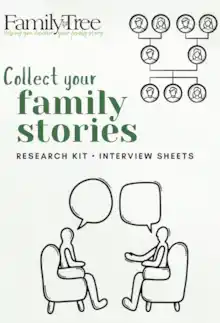01 May 2014
|
Buy the Lifeboatmen from Pen & Sword RRP £13.50. As we head for the seaside this summer, it's always good to kno
Buy the Lifeboatmen from Pen & Sword RRP £13.50.
As we head for the seaside this summer, it's always good to know that the RNLI are on hand should we need them. But what about ancestors and the lifeboat services in centuries past? Simon Wills' novel, Lifeboatmen, explores just this topic, getting to grip with the early days, and controversies, of the service, and helping us to understand the Victorian coastal communities from which it first emerged. We asked Simon a few questions about the inspiration for writing his historical novel and how he researched his specialist subject...
Tell us about how your family history research inspired the topic for your novel.
My great-grandfather, Richard, was a lifeboat coxswain and I grew up with tales of his heroic exploits. A larger than life character, he was so loved by his lifeboat crew that they refused to let him retire: he even led a lifeboat rescue in his seventies when he was dying of cancer. I wanted to find out how it all began – when did the lifeboat come to Poole where Richard lived, and what was it like in the early days?
I set off eagerly to explore this with my Dad, but the first information we found was a series of letters complaining about the lifeboatmen in 1866. People said they were incompetent, lazy, cowards, and should be sacked. This was before Richard’s time, but we were shocked. The novel is concerned with how these complaints came about, whether they were justified, and how the lifeboatmen responded.
You’ve written several factual history guides, what made you decide to write your story as a novel?
As I pieced together the real-life events, I began to appreciate that the story had everything you’d need in a novel: heroes and villains, controversy, and a big element of 'the little guys versus the establishment'. Add in the shipwrecks, hurricane, and courtroom drama, and it just seemed to cry out as a novel.
Which resources did you find particularly useful in researching Lifeboatmen?
Newspapers were vital, and I’m indebted to Poole History Centre which has indexed some of the local ones and of course the British Newspaper Archive. Apart from the letters of complaint, newspapers offered me reports of rescues, interviews with survivors, proceedings of the public inquiry, editorials, and obituaries. I also had privileged access to the RNLI archive, and used the excellent Southampton Central Library a lot, as well as Google Books.
As you got immersed in the lives of these 19th century lifeboatmen, what struck you most about the communities in which they lived?
The poverty stood out for me. Many of the lifeboatmen were fishermen and if they didn’t catch enough fish they and their families simply starved. The extremely rigid Victorian class structure is also an important feature of the story: every person had a fixed, well-defined place in their community. Yet the lifeboat crew were loyal to one another despite their first rescue attempt being a complete disaster. They stuck together even though they were sniped at from all sides.
How did you find balancing historical accuracy with the need for a good yarn?
I was concerned for accuracy from the outset because I wanted to recreate a Victorian seafaring community as completely and believably as I could. For example, the book opens with a character managing Poole Harbour’s navigation lights. I had to research their appearance, location, the fuel they used, and the lightkeeper’s role. My biggest challenge was restricting the cast of characters to a manageable number: if I had included every conceivable person involved I would have had 14 people called Thomas and 11 Georges! I’ve told the story truthfully, but confined my attention to a limited number of people.
What did you enjoy most about writing the novel?
You can find out a lot about long-dead people with careful research, but when you try to understand their point of view and make them speak you can for a brief moment bring them back to life. That’s what I enjoyed the most, and I hope I’ve done it in an engaging way.
If you're researching a project, we'd love to hear about it for our new 'reader research' coverage, with Simon Wills, that we'll be starting with the July issue of Family Tree. Your project could be on any family-history related subject, from the names on a First World War memorial, to local occupations in an area, a former business or hospital, and so forth. Just let us know what you're up to, and we will try to include as many reader projects in the magazine as possible. Please email brief details of your project and a picture to [email protected]. Thank you.








